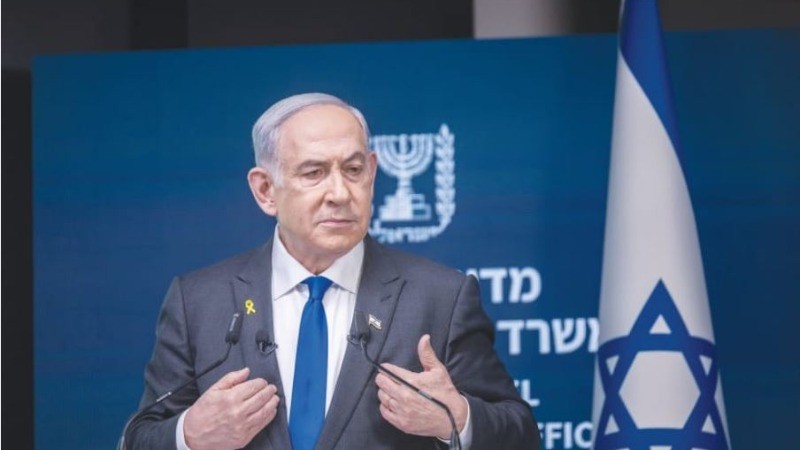
Israeli Prime Minister Benjamin Netanyahu is preparing to address the U.N. General Assembly amidst a challenging year marked by ongoing conflict and increasing international isolation. As the war in Gaza approaches its one-year anniversary and tensions with Hezbollah intensify, Netanyahu's visit aims to gather support, though skepticism surrounds his handling of regional issues.
A year ago, Netanyahu spoke confidently from the U.N. stage about a new era of peace in the Middle East. Today, that vision seems distant. The war in Gaza is still ongoing, and Israel faces the possibility of a broader conflict with the Iran-backed Lebanese group Hezbollah. Meanwhile, Netanyahu's leadership has sparked protests both internationally and within Israel itself, leaving the country more isolated.
Adding to these challenges is a looming issue for Netanyahu personally. He may soon face an arrest warrant from the International Criminal Court, potentially placing him in a difficult position, similar to figures like Russian President Vladimir Putin and former Sudanese leader Omar al-Bashir.
“He is almost at a point of being a persona non grata,” said Alon Liel, a former Israeli Foreign Ministry director-general and an outspoken critic of Netanyahu.
A Familiar Stage, but a Different Year
Netanyahu is set to address the U.N. on Friday. Known for his powerful speeches, he often uses these high-profile moments to deliver key messages and appeal to both global audiences and his supporters at home. Earlier this year, he made a strong case for Israel’s actions in Gaza during a speech to the U.S. Congress, where he was met with applause and ovations.
“In his view, any trip to New York, to the world stage, is an opportunity,” said Yossi Shain, an international relations professor. He explained that Netanyahu’s speeches often serve dual purposes: influencing international opinion and reinforcing support at home.
Netanyahu has a history of using U.N. speeches to push his policies. In 2012, he held up a cartoon bomb illustration to emphasize the threat posed by Iran’s nuclear ambitions. In 2009, he brought documents related to the Nazi death camp Auschwitz to highlight antisemitism in his criticisms of Iranian leadership.
Last year, Netanyahu's focus was on potential normalization with Saudi Arabia, suggesting that broader peace in the Middle East could be achieved without resolving the Israeli-Palestinian conflict. However, this year, Netanyahu's international standing has declined, raising questions about what he can accomplish during this visit.
Skepticism Amid Rising Tensions
Netanyahu’s return to the U.N. comes at a time when many are questioning the impact of his speeches. Critics argue that while Netanyahu is a believer in the power of rhetoric, his words may not resonate with a world increasingly frustrated by Israel’s actions in Gaza.
“He believes his U.N. speeches have historical significance. They don’t,” said Alon Pinkas, a former Israeli diplomat. Pinkas suggested that Israel’s international image is suffering, with Netanyahu seen by many as a "war-monger."
Netanyahu's visit may also attract protests, particularly in New York, where recent demonstrations against the conflict in Gaza have been intense. His long-standing leadership, particularly his tough stance on the Palestinians, has made him a divisive figure on the world stage.
The war in Gaza, triggered by Hamas’ October 7 attack, has taken a heavy toll. The attack killed 1,200 people, mostly civilians, and resulted in the capture of 250 hostages. Many in Israel blame Netanyahu for not preventing the escalation. In the war’s aftermath, more than 41,000 Palestinians have lost their lives, and much of Gaza’s population has been displaced.
Despite initial international support for Israel’s response to Hamas, the high civilian toll and prolonged conflict have turned global opinion against Israel. The Biden administration has grown increasingly critical, slowing down arms deliveries, while Britain has suspended some weapons exports to Israel over concerns about potential violations of international law.
Netanyahu’s trip to the U.N. is also overshadowed by a request from the International Criminal Court’s chief prosecutor for an arrest warrant against him. This could significantly affect his diplomatic standing, with few world leaders likely to meet with him during his visit, potentially undermining the trip's purpose.